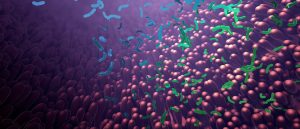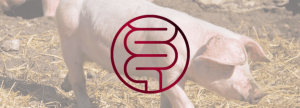In this interview Dr. Gomez shares some of his current research on swine microbiome and talks about its potential applicability at a productive level.

nutriNews International had the opportunity to speak with Dr. Andres Gomez Assistant Professor and Microbial Ecologist at the University of Minnesota. In this interview Dr. Gomez talked to us about some of his past research as well as his current work with the swine microbiome. Sharing his insights regarding the potential applicability of this type of research from a productive standpoint.
NutriNews International: Dr. Gomez on behalf of NutriNews International I want to welcome you to our new series of interviews and podcasts. We are a really happy to have you with us, and we want to thank you for participating.

Dr. Andres Gomez: Thank you so much for the invitation.
NutriNews International: Could you give us a brief overview of your career path and about some of your current work at the University?
NutriNews International: That is quite an interesting career path. Thank you for introducing yourself Dr. Gomez.
Microbiome research has drawn significant interest during the las couple of years, however it is somewhat of abroad concept that still holds a lot of unknowns regarding its applicability in animal production scenarios. How would you define the term “microbiome” from a physiological standpoint as well as based on its relationship with animal nutrition and physiological performance?

Dr. Andres Gomez: Well, the microbiome is defined as the collection of microorganisms, not just bacteria, but also fungi, virus, and protozoa which colonize different surfaces in humans, animals and the environment. In the case of animals we can refer to it as the collection of microorganisms living in different anatomical regions of that animal. Including the GI tract, oral cavity, reproductive tract, the skin, the nose, etc. Practically all of our body is colonized by microbes. Recent evidence collected during the past ten to twenty years and even dating further back, tells us that these microbes impact the physiological landscape of the host significantly. Whether it is through metabolites produced by these microorganisms when degrading different dietary substrates, but also through the interaction that occurs between these microbes, the metabolites that they produce and the host’s immune system. This three-way communication between metabolism, immunity and the role microorganisms influence many different aspects of the physiological mechanistic functioning of the host. Including the way in which we digest foods, how effective we are at retrieving energy from these food sources, how well we are able to fight disease, as well as educating the immune system. Referring to how microorganisms and immune cell orchestrate a very specific communication at a molecular level, which influences the functioning of the immune system. Therefore, through the research that we have been carrying out during this past ten to 20 years, we believe that the way these microbes interact within our gut, as well as their composition in different parts of the body, influences the host’s physiological performance in terms of metabolism, as well as its immunity and overall health…

This entry will be continued on a subsequent publication.
You can also watch the whole interview on our Youtube channel:
Subscribe now to the technical magazine of animal nutrition
AUTHORS

Nutritional Interventions to Improve Fertility in Male Broiler Breeders
Edgar Oviedo
The Use of Organic Acids in Poultry: A Natural Path to Health and Productivity
M. Naeem
Synergistic Benefits of Prebiotics and Probiotics in Poultry, Swine, and Cattle
Gustavo Adolfo Quintana-Ospina
Hybrid Rye Potential in Laying Hen Feed Rations
Gwendolyn Jones
A day in the life of phosphorus in pigs: Part I
Rafael Duran Giménez-Rico
Use of enzymes in diets for ruminants
Braulio de la Calle Campos
Minerals and Hoof Health in the Pregnant Sow
Juan Gabriel Espino
Impact of Oxidized Fats on Swine Reproduction and Offspring
Maria Alejandra Perez Alvarado